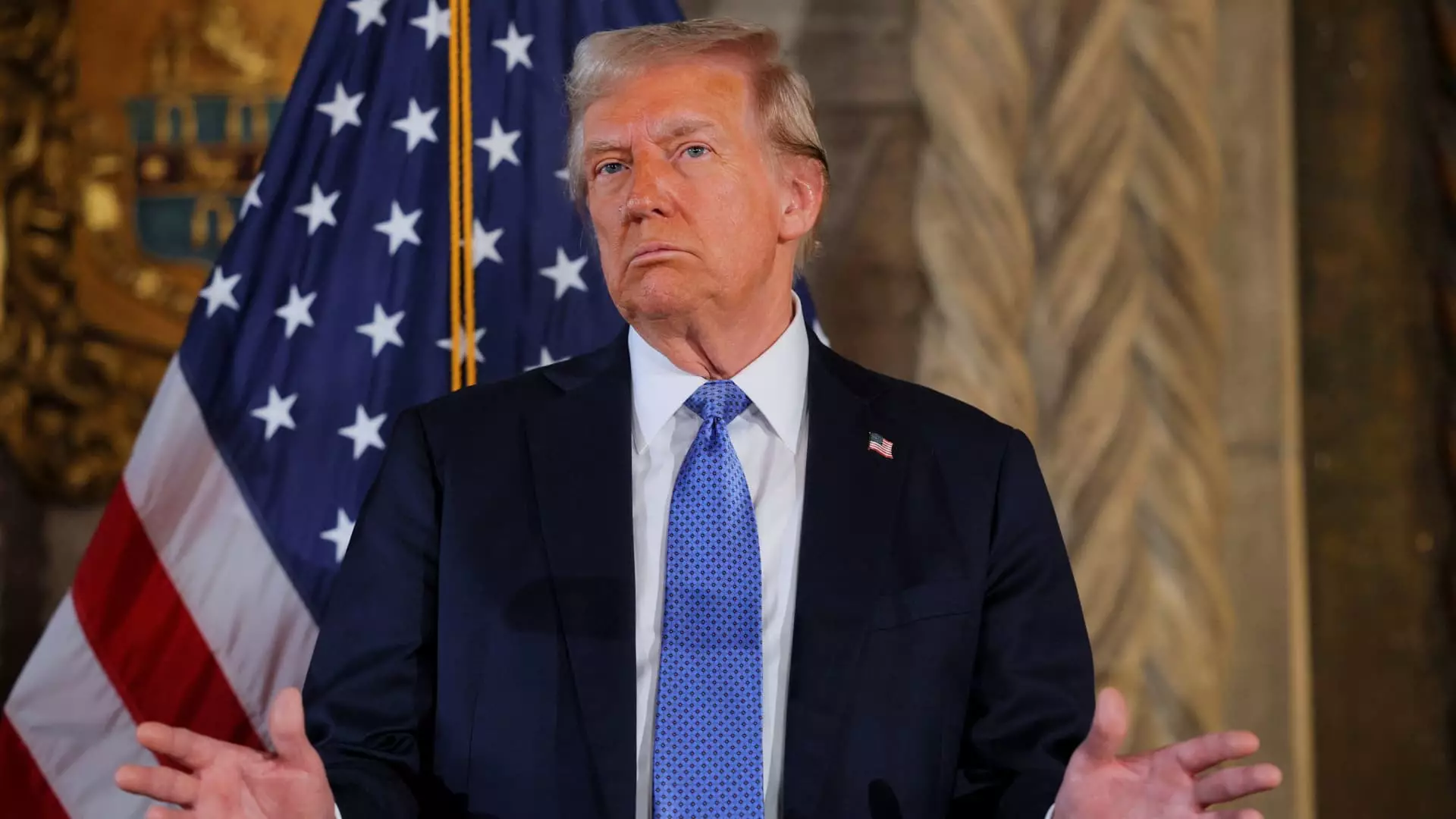In a move that has drawn attention and concern from global economic observers, President-elect Donald Trump recently articulated a strong directive towards the European Union (EU) regarding its trade deficit with the United States. On his Truth Social platform, Trump threatened that the EU must significantly increase its purchases of U.S. oil and gas to counterbalance an expansive trade gap or face potential tariffs. This ultimatum reflects Trump’s transactional approach to international trade—one that promotes the interests of the U.S. while putting pressure on trading partners to conform to its demands.
According to data from 2022, the trade deficit of the U.S. with the EU amounted to a staggering $131.3 billion. This has raised flags among U.S. policymakers and business leaders alike, who have long expressed concern over such imbalances. Trump’s remarks serve as a public flashpoint highlighting the fraught nature of transatlantic economic relations. As noted by a European Union diplomat, while they were not taken aback by Trump’s comments, the focus on energy—as a bargaining chip—signals a recognition of the potential for reshaping trade dynamics.
This trade deficit is not merely an economic statistic; it carries implications for job creation, domestic production, and the broader geopolitical landscape. As the EU navigates its relationship with the U.S., it must consider how best to align its energy and economic policies to benefit its member nations without succumbing to pressure that may not be in their collective interest.
The verbal exchanges between Trump and European officials are not occurring in a vacuum. Just prior to Trump’s statements, EU leaders convened to iron out their strategic priorities, emphasizing the importance of a pragmatic partnership with the U.S. European Council President António Costa reiterated the EU’s commitment to strengthening transatlantic ties, a sentiment that echoes the cautious diplomacy being adopted by European leaders as they engage with the incoming administration.
Chancellor Olaf Scholz of Germany had reportedly spoken with Trump the night before his Twitter post. This underscores the immediate diplomatic engagements taking place, suggesting that the EU is keen on exploring avenues for dialogue and negotiation rather than allowing tensions to escalate unchecked.
In response to Trump’s bold assertions, there are calls from within the EU for a robust and strategic counter-response. Former Italian Prime Minister Enrico Letta noted the necessity for the EU to adopt a transactional stance in dealing with Trump’s threats. He argued that blending issues of energy procurement with tariffs on manufactured goods is problematic; each stands on its own merits and challenges.
Letta’s viewpoint encapsulates a growing sentiment that the EU must approach negotiations with a clear understanding of its own economic capabilities and the importance of maintaining a balanced dialogue. Leveraging the strengths of the EU’s financial landscape to counter American pressure could be a plausible route to ensuring that both sides can benefit from a cooperative approach rather than a confrontational one.
The U.S. emerged as the largest recipient of EU goods in 2023, with the bloc’s exports to the U.S. making up nearly 20 percent of its trading activities. This dynamic is crucial as Europe contemplates its energy needs in the wake of geopolitical pressures stemming from the conflict in Ukraine and its reliance on Russian energy imports. Earlier assertions from European Commission President Ursula von der Leyen about the potential cost-effectiveness of substituting Russian liquefied natural gas with U.S. supply indicate a shift towards greater energy independence for the EU.
As the EU anticipates bolstering its energy purchases from the U.S., the promise of future negotiations looms. It remains to be seen how Trump’s administration will approach these talks and whether his assertive tactics will foster cooperation or breed animosity.
As Trump prepares to assume presidency and reign in a new era of U.S. trade policy, the unfolding relationship with the EU will undoubtedly be complex and multifaceted. The stakes are high on both sides, with energy security, economic stability, and diplomatic relations hanging in the balance. The coming months will test the resilience of transatlantic ties and the capacity for constructive negotiation amidst divergent national interests. Understanding this landscape is essential for navigating the challenges ahead, ensuring that trade remains a bridge instead of a barrier in U.S.-EU relations.



Leave a Reply